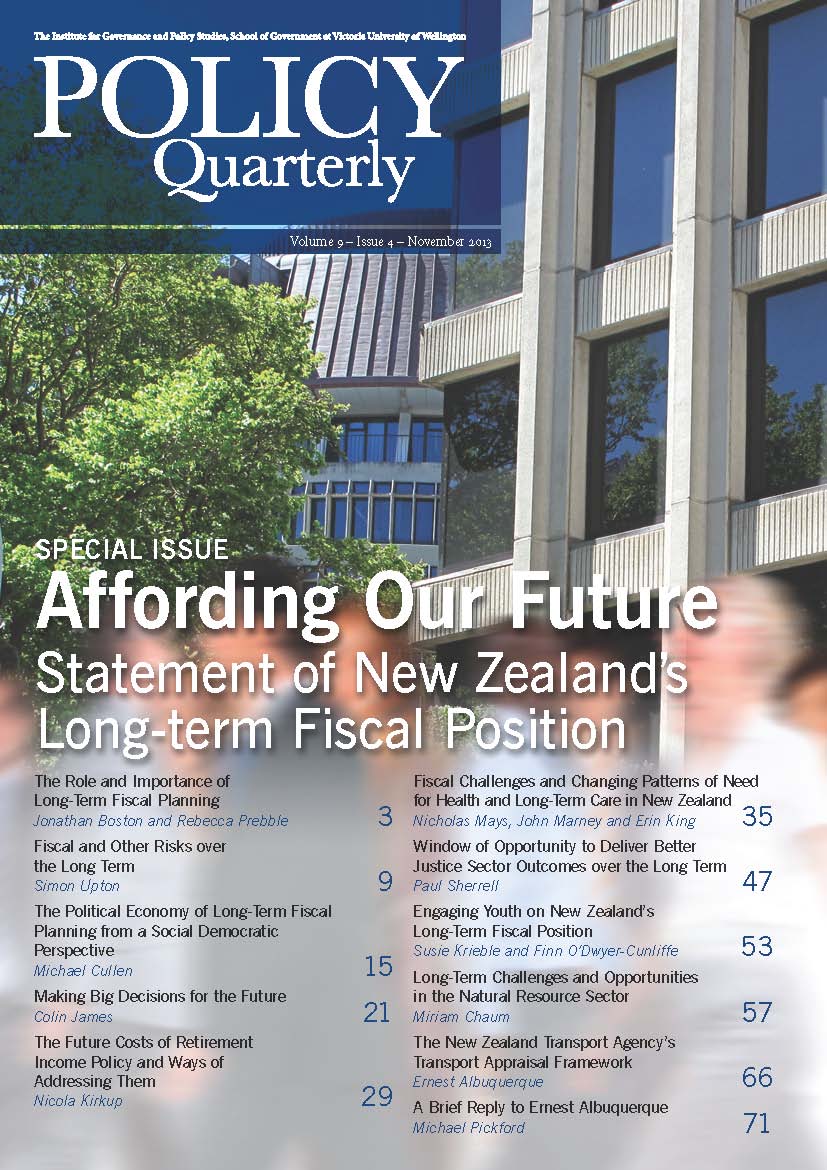Making big decisions for the future
DOI:
https://doi.org/10.26686/pq.v9i4.4467Keywords:
Treasury’s long-term fiscal projections, intergenerational tensions, short-term voter self-interest, multigenerational policy, OECD study, Treaty of Waitangi, MMP, ‘participatory’ reformAbstract
The Treasury’s long-term fiscal projections are designed to inform present-day policy. They draw attention to existing trends and potential future global and national developments in society, demography, politics, technology and the economy, and the fiscal implications of continuing existing policy unchanged through those changes over the next 40 years and beyond. They highlight that the later action is taken to offset an anticipated impact, the greater the policy change may have to be and also potentially the cost, not just in money but also in social cohesion if unusual intergenerational tensions develop as a consequence. But if large adjustments have to be made, even if over time, how might that be done in a representative democracy in which the ultimate decisionmakers, the politicians, are subject to frequent elections in which political folklore tells us the determinant issues are proximate and ‘courageous’ leaders are sacrificed to short-term voter self-interest?
Downloads
Downloads
Published
Issue
Section
License
Permission: In the interest of promoting debate and wider dissemination, the IGPS encourages use of all or part of the articles appearing in PQ, where there is no element of commercial gain. Appropriate acknowledgement of both author and source should be made in all cases. Please direct requests for permission to reprint articles from this publication to Policy-Quarterly@vuw.ac.nz.



